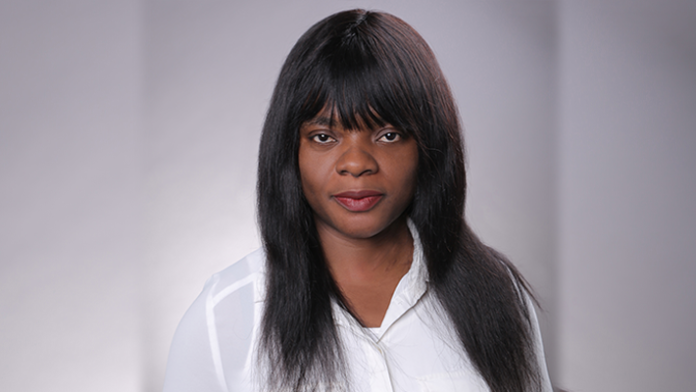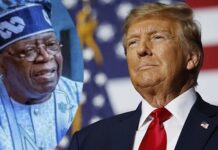By Mercy Abang
The Nigerian civil war has been recounted in various versions, depending on the source one relies on. It is a story that reflects Nigeria’s diverse and complex nature, often influenced by religious or tribal biases.
Growing up partly in Ogoja, Cross River state, my father shared with me the experiences of minorities at the hands of Biafran soldiers. These stories, though not pleasant, shaped my understanding of the war.
However, I encountered different perspectives as I delved deeper into the subject. My Igbo teacher highlighted the brutality suffered by the Igbo people, while my Yoruba teacher emphasized the perceived disloyalty of the Igbo to the Nigerian state.
- How South East can get Tinubu to release Nnamdi Kanu — Deputy Speaker
- Managing Risks in world’s biggest financial market
Unfortunately, I cannot draw a parallel with the thoughts of a Hausa or Fulani teacher, as I never had the opportunity to learn from one.
As someone with a keen interest in geopolitics and the challenges Nigeria faces 45 years after the war, I cannot help but see the lingering trauma and its impact on our politics and daily lives. The remnants of that war continue to haunt us, preventing Nigeria from genuinely becoming a united nation. We all suffer the consequences of the events that unfolded during and after the war.
Having visited Germany since 2012 and eventually deciding to settle there, I have witnessed firsthand how a nation can confront its dark past. Germany openly acknowledges its brutal history and constantly reminds its people of the importance of never repeating it. While Germany still has challenges to address, confronting its past is a fundamental part of its identity. Nigeria can learn from Germany’s example and strive to engage its history, acknowledge its mistakes, and work towards a better future.
It has become so essential that a negative past is not something to conceal. At the same time, the state set aside January 15 to salute her heroes who stood tall and paid the ultimate price in helping build a better Nigeria: the soldiers. Civilians deserve to be commemorated and acknowledged and not be a total erasure from the southeast to the south-south, north, and west.
Perhaps, as a people, we tend to hide our shame and anything that appears unpleasant. However, Germans do not hide their shame or the most distasteful parts of their history. By acknowledging their guilt, they have found strength to prevent its recurrence. Monuments and symbols remind them of their past, making their system a part of what they despise the most. Landmarks are created to honor those killed, leaving a mark of acknowledgment rather than erasure. The Memorial to the Murdered Jews of Europe, also known as the Holocaust Memorial, is in plain sight, and every year, there is a remembrance of the events held in memory of the Jewish victims of the Holocaust.
Only recently, in May 2021, Germany also recognized that its killing of tens of thousands of people belonging to two ethnic groups more than a century ago in present-day Namibia was a genocide. German Foreign Minister Heiko Maas had said and was widely quoted in the media, “In light of Germany’s historical and moral responsibility, we will ask Namibia and the descendants of the victims for forgiveness.”
He added that Germany will support Namibia and the victims’ descendants with more than $1.3 billion for reconstruction and development.
From 1884 to 1915, Germany occupied several territories in Africa. Its then colony, in today’s Namibia, was established to provide more territory for its people, a campaign called Lebensraum.
In Nigeria, we are still struggling to agree on a version of the civil war, while Germans are taught in schools and reminded daily that it happened but should never happen again. Today, on January 15, 1970, the Nigerian-Biafran Civil War ended officially; estimates of the number of people who died during the Nigerian Civil War vary significantly, from 500,000 to 3,000,000. Causes included battlefield deaths, ethnic cleansing, and starvation, according to Britannica.
However, we have silenced the narratives in Nigeria and held onto different versions of the war. We should learn from Germany and bring back all the versions. Here is also an appeal to General Gowon, who can provide his version and help us build bridges and resolve lingering issues. Holding onto this bandage as a nation is unsustainable and has shown us its destructive nature. We have become a people lacking empathy for one another. Why are we not teaching our children about the Civil War? Why don’t we have monuments and museums in Abuja showcasing our history and emphasizing the importance of avoiding a repeat? Why are we hiding our shame, thinking it will go away? Rwanda is not far. Can we learn from the genocide in Rwanda and the memorial in Kigali?
Mercy Abang is the co-managing Director for a renowned global network of journalists and a publishing platform based in Germany. Presently, she spearheads the team in seeking discretionary grants for the organization. Mercy provides valuable guidance to international corporate entities in the global north, aiding them in effectively allocating their funds to support media organizations and initiatives in the global south that serve public interest. These roles hold immense potential for making a significant impact, mainly when entrusted with substantial financial resources dedicated to meaningful causes. Mercy actively participates in various journalism awards as a panel judge and holds positions on several boards, leveraging her expertise and experience as an award-winning journalist with a wealth of knowledge. She can be reached at @abangmercy on Twitter.




